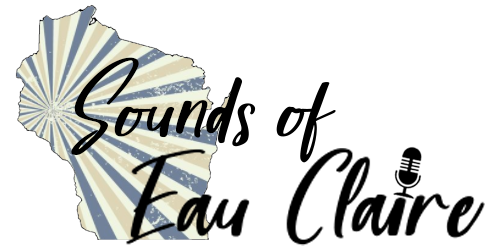-

-

Nobuyoshi Yasuda is a professor of music and director of the university orchestra. He opens this Oral History discussing his early life in Japan and how he was raised into music, as well as his experiences with music as a student in Japan. Following this, Yasuda explains what brought him to direct music in the Chippewa Valley and his experiences conducting in events and places such as the Pablo Center and Viennese Ball.
-

Marcia Vanbeek is the former director of Major Gifts at the University of Wisconsin Eau Claire, and Kimera Way is the former president of the Foundation. They both discuss their role in the Viennese Ball, their past and current involvement with the event and on the committee, and the importance of scholarships and the significance they hold to the event. Both women also talk about changes the Ball has seen since its inception, such as the impact of the New Davies Center on the Ball.
-

In this second interview with Jerry Way, he explains more about his time in the union, the gigs that he did, and the growing perception of jazz in the region. Eau Claire was a union town, and music was no exception; being in the union opened up more venues of opportunity. Way became vice president of the union at one point and discusses the importance of the “bash” during the oral history. Furthermore, Way discusses the impact of DJs on the local music scene, as well as his opinions on them, and also the kinds of venues he’d play at during his freelancing years. Adding more to the history of his early musical life, he gives more information on the early stage band at Wisconsin State University-Eau Claire, and how it affected the perception of jazz in the city and larger region. He ends remarking on the wonder of current music culture in Eau Claire, and how the new generation of musicians learn.
-

This interview discusses Way’s experience as a local playwright and composer. Way talks about how he taught music in the Chippewa Valley for decades after graduating from Wisconsin State College-Eau Claire in 1967.
-

Paula Stuettgen discusses her role in planning, advising, and designing posters for the Viennese Ball, as well as instructing dance lessons for the Ball. Following this, Stuettgen talks about the early days of the Ball, such as differences between the new and old Davies Center and traditions that have come and gone. Struggles of planning the Viennese Ball are also examined, such as pushing legislation to allow alcohol to be served at the event.
-

Peter Steinmetz talks about his family's objects that he brought in for the history harvest. This includes a picture of the 105 Mounted Band formulated in Eau Claire in the 1900's by Theodore Steinmetz his uncle. For the rest of the oral history he talks about his lack of knowledge surrounding certain aspects of the artifacts and some other experiences about his father and uncle with regards to music along with mentioning some other artifacts including a Snare Drum from the 32nd Milwaukee.
-

This interview discusses how Sorenson began Nate’s Dungeon, a venue from 2000-2012 that operated out of the basement of his mother’s house. Sorenson talks about the pros and cons of hosting punk bands in his mom’s basement along with giving a great description of what the local punk rock scene was like in the Eau Claire area.
-

This interview discusses his music career in Eau Claire both as a musician and shifting to editing music in his personal recording studio studio.
-

Gary Schwartzhoff is a former director of choral activities from the University of Wisconsin Eau Claire. He was influenced in music by his catholic church during his childhood, which eventually led him down his career path. In this Oral History, Schwartzhoff discusses his roles and responsibilities as director of choral activities, his work with the Viennese Ball, and how he coordinated the UWEC choirs with the Ball. He also discusses his work with Ada Bors and her impact on the Ball.
-

Originally from Iowa, Dr. Gary Schwartzhoff is the artistic director and conductor for The Master Singers, a past Director of Choral Activities and Professor Emeritus at the University of Wisconsin-Eau Claire. His interview connects with the stories previously interviewed individuals in terms of UWEC history and the activities of university-affiliated and non-university music groups in the community. Schwartzhoff goes into detail his life before Eau Claire and about the circumstances under which he was hired initially as a director at UWEC. Furthermore, Schwartzhoff discusses his perspective on the factors which have led to the development of the current music culture in Eau Claire.
-

James Schmidt is the current Chancellor of the University of Wisconsin Eau Claire. The interview begins with Schmidt discussing his early life and career, but the main focus of the Oral History is the Viennese Ball, where Schmidt discusses how he came to learn of the Ball, his experiences with the event, and the power of student experiences with the event. The Chancellor cites his personal philosophies in how important the event can be in shaping the lives of students.
-

Alan Rieck resides in Bellefonte, Pennsylvania and he is a graduate from the University of Wisconsin, Eau Claire and later a professor at the university for 15 years. He was also a music education coordinator for 3 years before his leaving the University. Alan Rieck discusses his early days at the University of Wisconsin Eau Claire and how he joined the school as a music educator. Additionally, he talks about his work with the Women’s Concert Chorale, their international experiences, and his role in producing the Viennese Ball.
-

Ben Richgruber is the executive director of the Eau Claire Regional Arts Center. In this Oral History he discusses his early life with music and his education involving the arts. He also discusses his involvement with the Eau Claire Regional arts center and the State Theater.
-

Dr. Peters discusses her early beginnings in music during school, and how the dedication of a public school teacher fostered her interest in the cello. From there, she speaks about her work with EDI, explaining how she came from her dissertation on marginalized medieval music to presentation of Native American music today. In addition, she notes that the University unfortunately continues a tradition of marginalization by presenting primarily white male works of music, despite our city’s rich musical tradition. Because of this, she doesn’t see Eau Claire as having “one sound,” as a logical musicologist knows that there are so many other components that create a broader regional picture. There is a mainstream sound (e.g. indie music), which is important to Eau Claire’s culture and community, but that’s not to say that any other musical genres are subpar; the mainstream sound, according to Peters, is overall positive for the city, especially in economic and educational terms, but UWEC must continue its tradition of working with the community.
-

This interview discusses Perry’s writing career and his early music career as a county-folk artist. Discusses his time at UWEC and Eau Claire’s music scene during his time in college and after. Goes on about the Eaux Claires music festival and other festivals in the area. Perry also discusses his radio show called “Tent Show Radio”.
-

Barbara Pautz is a former German professor at the University of Wisconsin Eau Claire. She discusses her early life and the impact of her upbringing on her career and her work in the German department. Pautz also focuses on the founding of the Viennese Ball, including her inspiration for the event, the founding of the Ball and challenges associated with setting up the event, and how the Ball has changed into what it is today. Finally, Pautz shares her disposition towards how the Viennese Ball is handled today.
-

Sue Orfield, a Menomonie native, is tenor Saxophone player that plays in a multitude of bands in the Chippewa Valley region along with other bands in the Midwest and in Seattle. Orfield’s oral history discusses her musical origins, her music education, and how she teaches private lessons. Along with this, Orfield discusses her music career in the Chippewa Valley and how the Eau Claire music scene and community is very unique.
-

Sarah Olson is a local middle school music teacher and UWEC Alumni. Olson speaks on her experience with teaching music in Eau Claire and her charity work associated with her class. She also discusses the "Eau Claire Sound" and the other elements of the Eau Claire music scene such as collaboration, the UWEC Jazz program, the local Chippewa Valley Festivals that make it unique.
-

This interview discusses Olson’s record label, his experiences in the bands Gayngs, Polica, and Marijuana Deathsquads. Also discusses his opinion on the support that music and in Eau Claire.
-

This interview discusses music in his childhood, such as private lessons, playing various instrument before settling on the trumpet, and jazz music in Eau Claire. The interview also discusses the change in music in Eau Claire over time.
-

Scott Morfitt is the manager of Blugold Radio. In this Oral History, he discusses his interactions with music at a young age and his attraction to radio. Additionally, he talks about managing a local radio station and how the music scene in Eau Claire interacts with the station.
-

This interview discusses how music influenced her growing up, her music career and Eau Claire’s impact on her career in music. The interview also discusses her opinion about Eau Claire’s musical renaissance.
-

Evan Middlesworth is a Producer, Engineer, and is the owner of the Pine Hollow Recording Studio. In this Oral History, he discusses his early interactions with music and what brought him to Eau Claire. Also, he discusses the Eau Claire Music scene and his experiences running a recording studio.
-

UWEC alumnus, graduated in 1975 with a degree in Music Ed. Last president of the Musical Arts Coral, also apart of many other musical organizations, most notably the Master Singers. McFayden shares her experience with the Master Singers along with the conductor who was a long tenured professor at the university. She discusses the requirements for joining these groups and how students got involved.

























